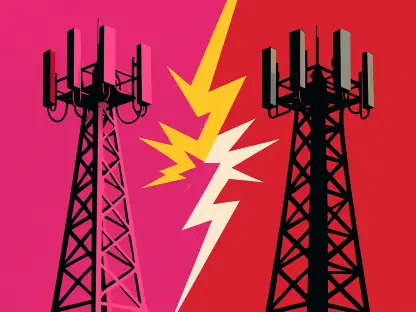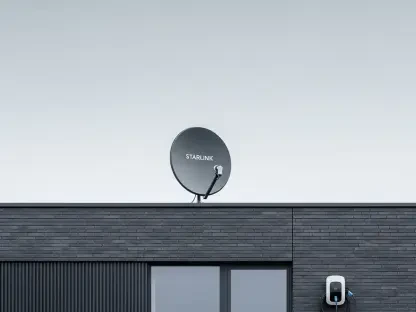The U.S. Commerce Department has escalated its crackdown on China’s Huawei Technologies Co., delivering a significant blow to the tech giant and signaling intensified trade tensions. This comes as a sobering development for both Huawei and its American suppliers, with the center stage occupied by the high-stakes drama of international trade and security.
Revocation of Licenses
Implications for Huawei
Huawei’s reliance on U.S. technology took a major hit when the Commerce Department revoked licenses from major chipmakers like Intel and Qualcomm. Intel’s cutting-edge processors, crucial for Huawei’s laptops, make the prohibition a potential stall in the production of popular models like the MateBook X Pro. The laptop’s debut had stirred controversy, appearing as though Huawei was still able to secure cutting-edge American technology despite lingering national security anxieties. The Commerce Department’s action has unequivocally clarified the U.S. stance, putting Huawei’s future releases in jeopardy.
Impact on U.S. Companies
This regulatory tightening poses a rocky road for U.S. chipmakers as well. Intel, already navigating through troubled waters with a slump in demand for its key chip divisions, faces another hurdle with the license revocation. The market value of these companies is susceptible to the turbulence of these geopolitical decisions, which now leaves them to reassess their partnership strategies. Having previously managed to secure deals with Huawei, the changing landscape casts a long shadow over their prospective earnings and long-term customer relations.
Global Tech Market Repercussions
Geopolitical Struggle and Tech Dominance
The ongoing saga of the U.S. Commerce Department against Huawei is reflective of a larger geopolitical power play. Huawei has been enmeshed in allegations of espionage, resting at the heart of the Sino-American struggle for technological dominance. Republican lawmakers, notably Congresswoman Elise Stefanik, have praised the latest move, asserting that it hinders China’s ability to advance technologically. This narrative taps into the broader theme of national security driving tough-on-China policy measures.
Economic Implications
The U.S. Commerce Department’s intensified measures against Huawei Technologies Co. mark a significant upturn in trade and security tensions that places the firm and its U.S. suppliers at the center of growing international concern. This strategic maneuver affects Huawei’s operational capabilities and signals a potential escalation in the trade rift between the two economic powerhouses.At the core of this issue is the delicate balance between commerce and national security, with Huawei, a private Chinese corporation, caught within the broader geopolitical contest for technological dominance. American suppliers, entangled by these restrictions, face the daunting task of navigating the choppy waters of compliance and international diplomacy.As the U.S. tightens its regulatory grip to diminish perceived threats, there could be reverberating consequences for global technology supply chains. The tech world watches with bated breath as the fate of Huawei, a former symbol of China’s global tech ascendancy, hangs in the balance, emblematic of the broader U.S.-China power struggle that continues to define the 21st-century economic landscape.









